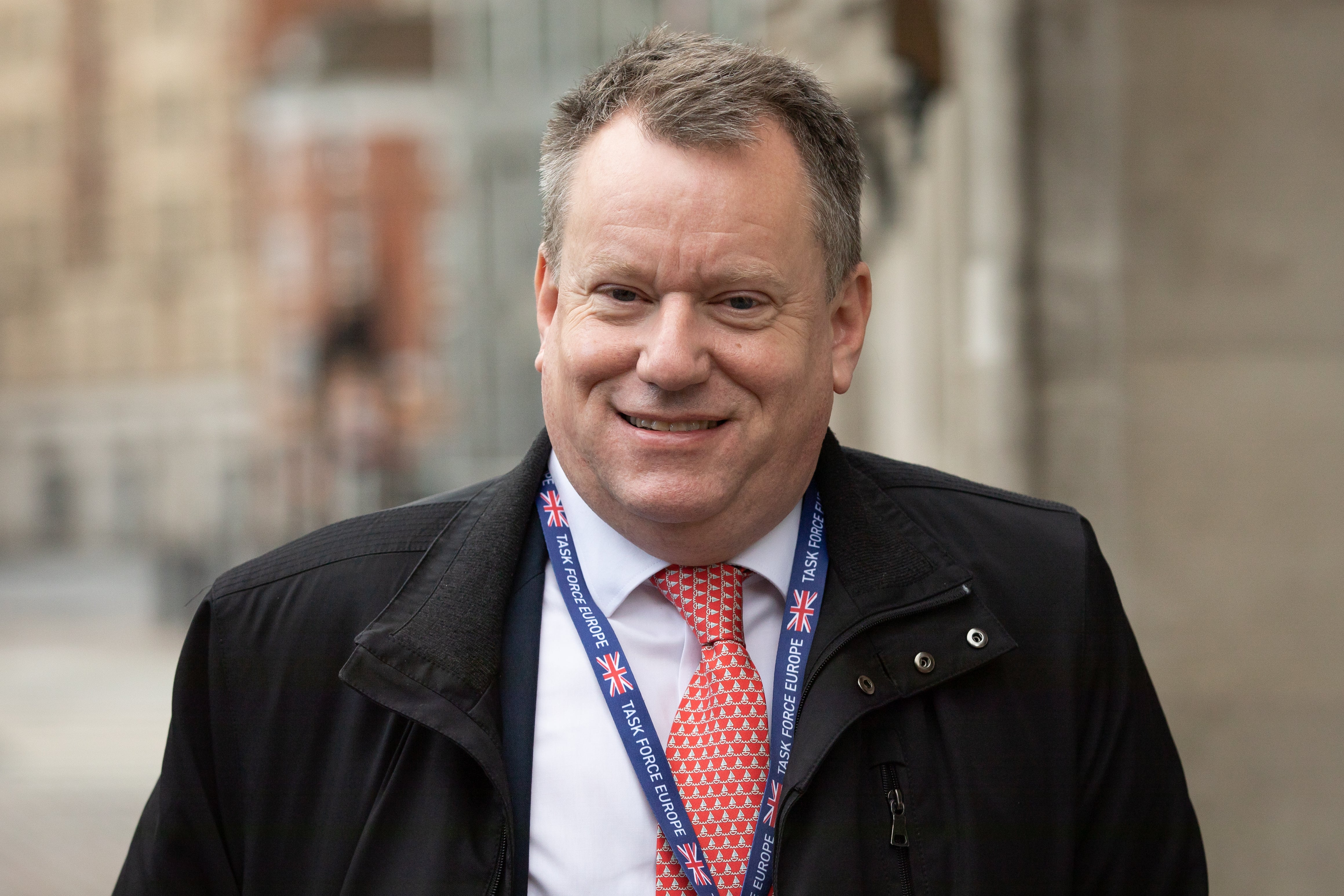Brexit deal is contradictory and its contents are a ‘matter for debate’, says UK chief negotiator David Frost
Lord Frost personally led the team that negotiated the Northern Ireland protocol but now wants it changed

Your support helps us to tell the story
From reproductive rights to climate change to Big Tech, The Independent is on the ground when the story is developing. Whether it's investigating the financials of Elon Musk's pro-Trump PAC or producing our latest documentary, 'The A Word', which shines a light on the American women fighting for reproductive rights, we know how important it is to parse out the facts from the messaging.
At such a critical moment in US history, we need reporters on the ground. Your donation allows us to keep sending journalists to speak to both sides of the story.
The Independent is trusted by Americans across the entire political spectrum. And unlike many other quality news outlets, we choose not to lock Americans out of our reporting and analysis with paywalls. We believe quality journalism should be available to everyone, paid for by those who can afford it.
Your support makes all the difference.Britain's Brexit chief has said the agreement he negotiated with the EU to resolve the Northern Ireland problem contains a serious "contradiction".
Speaking at a parliamentary committee on Monday afternoon Lord Frost said it was a "matter for debate" what key parts of the agreement actually meant.
And he claimed the EU was already "arguably" letting the UK breach parts of the deal.
On Wednesday the minister is set to unveil the government’s proposed changes to the Northern Ireland protocol. Lord Frost will explain the plans in a statement to parliament to be delivered alongside the release of a new policy paper.
"One of the difficulties with the protocol is that it's quite a purposive document, and a lot of its provisions have to be read with other provisions to sort of work out precisely what they mean," Lord Frost told a session of the European Scrutiny Committee on Monday ahead of the announcement.
"For example, the contradiction between the provision saying the union customs code must apply, and the provision that says that you must do your best to reduce checks at Northern Ireland ports: quite what the correct interpretation of those two things is is obviously a matter for debate.
"So I think the issue is that certainly arguably, the way the EU is allowing us to run some of these arrangements is arguably not consistent or only partly consistent with that sort of balance.”
Lord Frost personally led the team that negotiated the agreement with European Commission officials in Brussels.
During the 2019 election Boris Johnson claimed the agreement was "oven ready" also describing it as "a very good deal" and a "reasonable, fair outcome".
But since attempting to implement the deal, the British government now says parts of it must be changed to better suit British businesses in Northern Ireland.
The protocol has led to shortages of some goods in the territory and the situation is expected to worsen when grace periods end. The EU says it should be implemented as agreed.
The Reuters news agency reports that the government is planing to threaten to deviate from parts of the Brexit deal unless the European Union shows more flexibility over the Northern Ireland issue.
Asked whether the UK might trigger Article 16 of the agreement, which would effectively terminate parts of it, Lord Frost told the committee that "all options are on the table".
Repeating his concerns about the treaty, he added: "We all know that the protocol isn't sustainable in the way it's working at the moment.
"I think the only way it can be made sustainable is if we can find a way to either hugely reduce or eliminate the barriers between Great Britain and Northern Ireland, goods moving in that direction. We need to, as we go forward, and try and find a way of achieving that, so as to reduce the burdens.
"We've said this a few times before, and it remains the core of the problem, that the boundary between Great Britain and Northern Ireland is is too dissuasive, too complicated, or too chilling of identity in various ways and that's that's what's got to be solved, I think, in terms of direction of travel.
"So we're keeping obviously all options on the table. That's, that's clear. And I think that will remain the case after we have made that statement because we need to remain flexible to events.
"I think if we can, it's obviously more likely to produce a durable outcome if you can proceed by agreement, and it remains to be tested, I think on the basis of the discussions we've had so far as to whether it really is possible or not."
Join our commenting forum
Join thought-provoking conversations, follow other Independent readers and see their replies
Comments